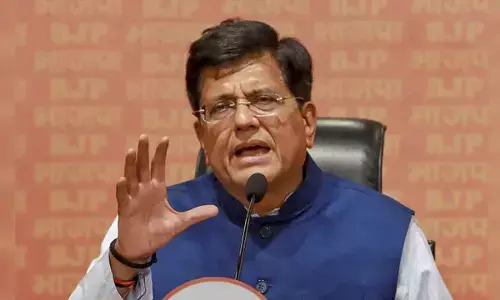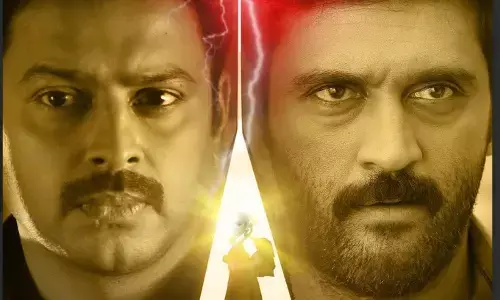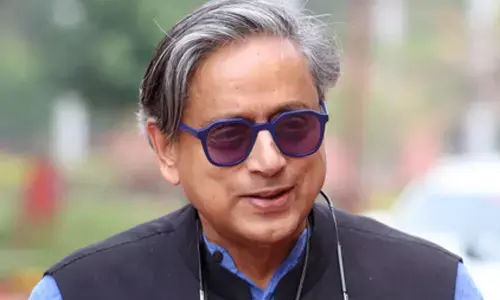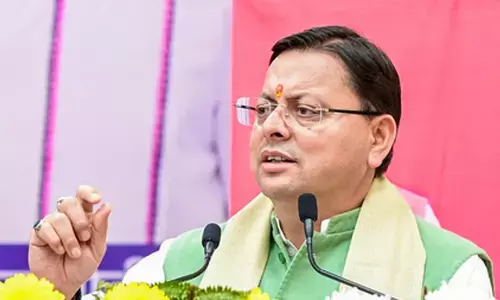Indian businesses uniquely positioned to leverage new digital media

Indian businesses uniquely positioned to leverage new digital media
Without legacy systems of the past, Indian businesses are uniquely positioned to leverage the new digital media, says Will Page, former Chief Economist of music streaming app Spotify, in his new book "Tarzan Economics" (Simon & Schuster), extrapolating the global music industry's journey in coping with the threat of online piracy to present eight principles for pivoting through today's ubiquitous disruption in almost all industries -- much in the manner in which the 'ape man' swings from vine to vine to attain his goals.
"Two words: 'leap frogging'. India is in a fascinating position to put this book to work. As it moves head first into new digital media, it doesn't have the legacy systems of the past. Look at how fast Indians adopted YouTube as data costs on telecom networks fell -- they hit 240m users within a year of it becoming affordable, that was more than the global tally of music subscribers at the time -- and we're talking about one country and one video service.
"India is a country where a quarter of a billion people are one thumb press on a piece of glass away from engaging in the next new thing ... tomorrow," Page told IANS in interview, hoping to visit the country someday "to pass on as much as I can to the executives of tomorrow".
"May I also add, I really admire the way that education is so valued in India. It's prized across society and will prove the secret sauce to the next ten years of economic progress. I was once told India has between 100m and 200m students - think about that for a second. Getting Indian millennials to pay for media content is hard, getting them to pay for education is easy - one solution might be to bundle the cost of media into education. Make that work and we're off to the races," he explained.
Page has had a front-row seat as for years, the music industry fought against the tide of piracy but when the business finally embraced digital streaming, it opened up new avenues for growth and recovery. These hard-earned experiences have never been more relevant for us all as we come to terms with the massive disruption of recent events, and Page brilliantly reveals how we can apply the lessons to our own lives and careers.
Examining how companies like Tupperware, Starbucks and Tower Records are coping with a "jungle of challenges". Page assesses the new dynamics of the "long tail' (a period in time when sales for less common products can return a profit due to reduced marketing and distribution costs), highlights the fundamental flaws in our focus on GDP, and provides a practical tool for discovering the right role for each of us to succeed in the modern world.
What then, are his eight principles?
♦ Tarzan Economics: Let go of what you know is dying and reach out to an unknown that is thriving
♦ Pay attention: Help consumers make more effective use of their scare attention. Identify whether activities complement or substitute your product
♦ Draw a crowd: The gatekeepers are gone. The consumer is the new broadcaster and their reach holds no boundaries
♦ Make or buy: Sometimes it pays to ditch the intermediaries. Don't cede control to others. Go it alone
♦ Self- interest versus the common good: Sometimes it pays to throw your hat in the collective ring to pivot through disruption together
♦ Pivotal thinking: Some "loony" logic can go a long way -- when the opposite of a good idea can also be a good idea
♦ Judge the state we're in: Challenge date that's measured by outdated tools and methods -- lessons for governments worldwide, as what matters most is often what's measured least
♦ Big data, big mistakes: Beware of the dangers of quantification bias, which favours the measurable over the immeasurable
Page admits that writing the book wasn't easy but was a deeply satisfying experience.
"This is my first book and I have to admit that I was completely out of my depth. I was playing 'tennis with myself' during much of the writing process. Playing tennis with yourself captures the loneliness of the book writing process - you can sit... mulling over an idea or concept for hours, days, weeks ...but you have no one to 'return your serve'. That was a big lesson for me in writing a book -- just how lonely you are during the early stages of the process. But that loneliness can really inspire ideas that wouldn't have happened otherwise.
"The old adage of "if it ain't hurting, it ain't working" applies here -- you need to stare into the darkness to see the light at the end of the tunnel, and I'm pleased that I got out of that tunnel," Page elaborated.
One glaring fallout of the disruption caused by the pandemic is that on the one hand, businesses and economies have collapsed and tens of thousands of people have lost their jobs or have had to contend with drastically slashed wages, but on the other, there has been a sudden rise in wealth of some of the world's richest individuals, including those in India. How can this be explained?
"I can't comment on individual wealth, but tech stocks have rallied beyond anyone's expectations since the pandemic and I put this down to 'TINA' which stands for There Is No Alternative -� investors have decided to gun it for equities (and nothing else) and a herd like mentality has kicked in. We're in bubble trouble territory but the problem with TINA is where else do investors go? This rally could run for another year yet," Page maintained.
What next? What's his next project? "The book has a staggered launch; in April in the UK then from 17 May in the US so I'll be busy throughout the second quarter. I also want to do more teaching and I'm thrilled to be made a fellow of London School of Economics for 2021. Outside of the book duties I want to work on live streaming services like Twitch as I'm convinced that the advancements in live streaming won't go away when live music returns - so the 'Tarzan Economics' question to ask is how will these two forms of media co-exist?
"Then there's India - I need to visit the country as soon as it's safe to do so. Not just to promote the book but to do some lectures as schools and universities in the country - to pass on as much as I can to the executives of tomorrow," Page concluded. It certainly is a visit that will be eagerly anticipated.

















